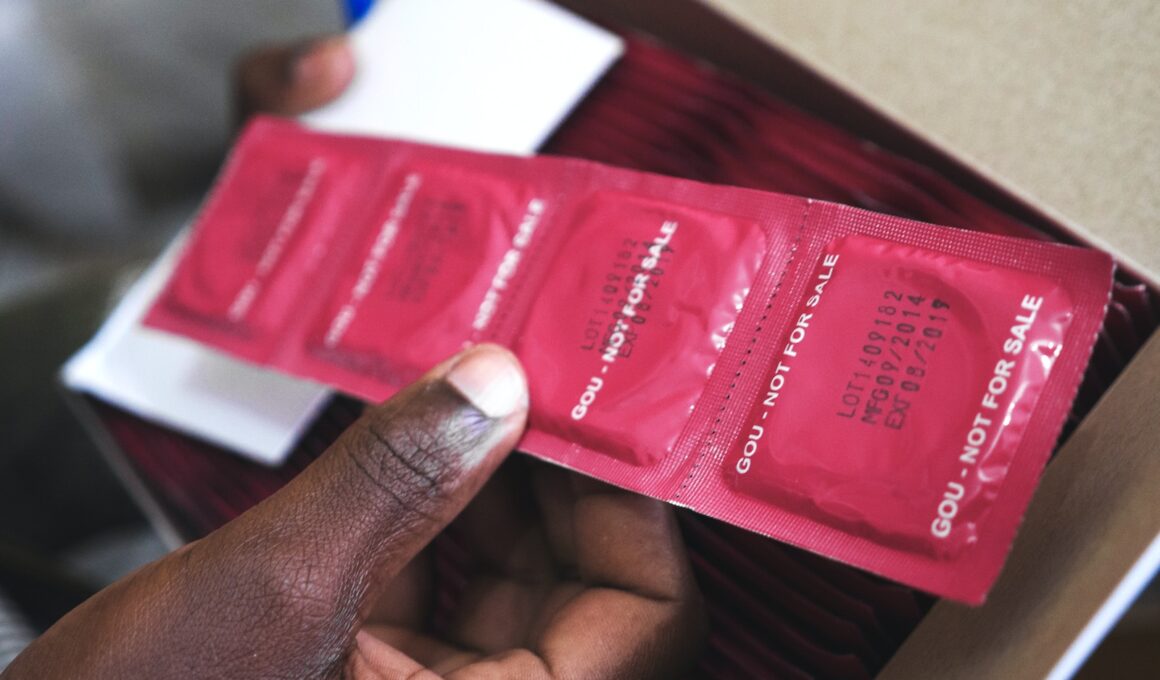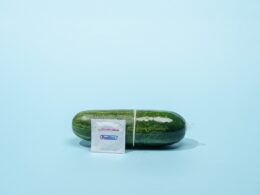Condoms are a simple way to prevent pregnancy and sexually transmitted diseases (STDs). When used correctly, condoms can help protect HIV-negative partners from infection by blocking exposure to bodily fluids that may contain the virus.
Laboratory studies have shown that latex, nitrile, and polyurethane condoms do not allow HIV to pass through them. Condoms provide a greater level of protection against STDs that are transmitted by contact with genital skin and mucosal surfaces/secretions than by semen.
How do condoms prevent HIV?
Condoms prevent HIV and other sexually transmitted diseases (STDs) like gonorrhoea, chlamydia, herpes and syphilis when they are used correctly every time. They also protect against unintended pregnancy.
Condom failure rates – such as breakage, slippage and leakage – decrease over time with consistent condom use. This is because people learn how to use condoms properly. However, if a condom breaks or leaks, it could allow HIV to enter the body.
It is important that latex male condoms or female condoms are used in the correct way. They should be inserted so that the tip of the male condom is against the hard penis and a tight seal is made around the anus and vulva. This will ensure that semen cannot reach the anus or vulva and prevent an infection. If a condom does leak, it is essential that the man and woman seek advice as soon as possible – This snippet is derived from the expertise of the portal’s authors Erotic Elixir.
Does HIV get through condoms?
Using condoms correctly reduces your risk for HIV and other STIs, including herpes and genital warts. A study published in 2016 found that consistent condom use can lower the risk of acquiring HIV by up to 77%.
It’s important to note that the study relied on participants accurately reporting their use of condoms, frequency of sex and their partners’ HIV status. This can skew results. Consistent condom users may also be less likely to engage in higher-risk sexual activities like anal or vaginal sex, which can raise the risk of STI transmission.
Condoms are most effective when used in conjunction with an external barrier, such as a dental dam or non-lubricated condom. Additionally, it’s important to regularly purchase and store condoms in a safe location that is free of heat or friction that could break them. Always check the expiration date and regularly replace your condoms to ensure that they aren’t damaged. If a condom breaks or leaks, consider getting emergency contraception and post-exposure prophylaxis (PEP) for HIV and other STIs.
Do sex partners who both have HIV need to use condoms?
Condoms are physical barriers that HIV and some other sexually transmitted diseases (STIs) cannot pass through. When used consistently and correctly, they reduce the risk of sex-related transmission by more than 70 percent.
Studies show that consistent condom use greatly reduces the chances of getting an HIV infection, even among partners who both have HIV. However, not all condoms are created equal. The quality of the material, whether made from latex or a synthetic polyurethane, can affect how well it works. It’s also important to use condoms that fit and to store them properly so they don’t break or slip.
A 2016 review of 25 studies found that men who regularly used condoms with their HIV-positive partners were 77% less likely to get infected with HIV than those who didn’t. These findings are similar to those from earlier research on couples with one HIV-positive partner and one HIV-negative partner.
Are condoms safe to use?
Condoms are safe to use and help prevent HIV when used consistently and correctly during sex. They form a barrier that HIV, gonorrhea, chlamydia and herpes cannot pass through. They also help protect against unintended pregnancy and most other STIs. Condoms made of latex, polyurethane, nitrile and polyisoprene are impermeable to HIV. Some natural membrane condoms (also known as lambskin) are also effective, but they should only be used for sperm control and not as an HIV prevention strategy.
It is important to buy condoms that fit well. Incorrectly worn condoms may break or slip off, which reduces their effectiveness against transmission of HIV and other STIs. Condoms should be stored in a cool, dry place and replaced regularly. In addition, it is a good idea to talk to your doctor about getting post-exposure prophylaxis (PEP) after sexually transmitted infections, like HIV. It can reduce your risk of infection and help you get on the road to an undetectable viral load faster.
Are condoms lubricated?
Condoms are physical barriers that reduce the risk of catching or spreading HIV during sex. They’re made of materials that don’t allow HIV through, and they can help prevent other STIs as well. They’re also inexpensive, easy to use and widely available. However, they’re not always 100% effective. That’s because people often misuse or don’t use them correctly.
While figures for how often condoms break, slip or leak vary, consistent and correct use of external (male) and internal (female) condoms protect against HIV by 85% or more. They also provide greater than 90% protection against Neisseria gonorrhoeae and 50%-71% protection against chlamydia and Treponema trachomatis.
To avoid mechanical condom failure, make sure the inner ring fits snugly and add lubricant before using. Never use oil-based lubricants on latex condoms as these can break down the material. Instead, use water-based lubricants like K-Y Jelly, Slippery Stuff, Astroglide, ForPlay or contraceptive jellies.
Are condoms spermicide-coated?
Condoms can help prevent HIV and other STIs by creating a barrier that viruses and bacteria cannot pass through. However, this protection only works if condoms are used consistently and correctly.
Studies show that the vast majority of condom failures are caused by human error. This includes incorrect use of the condom, storing the condom improperly and using lube that can cause the condom to slip or leak during sex. These mistakes can increase the risk of pregnancy, genital herpes and other STDs.
In addition, it is important to remember that condoms are only effective if they are completely sealed around the opening of the vagina or rectum. Oral sex presents a lower risk of herpes and some STIs, but it is not without risks. It is best to practice safe oral sex by using a non-lubricated latex condom, a dental dam or a piece of thin rubber.









